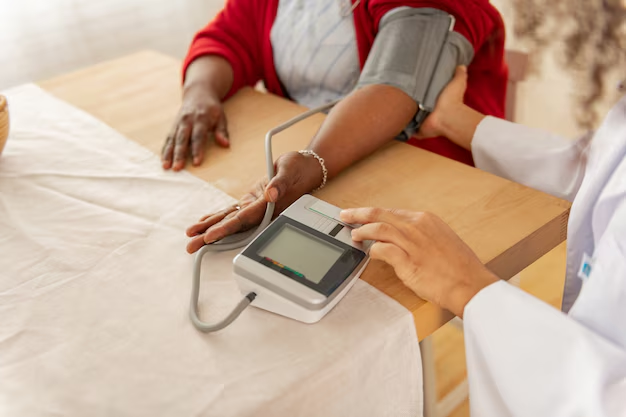Understanding Hypertensive Disorders: What You Need to Know
When it comes to health concerns many people face globally, hypertension ranks prominently. This “silent killer” often lurks unnoticed, silently wreaking havoc on your body until it manifests in more severe conditions. Understanding hypertensive disorders is crucial for maintaining long-term health, and this article will provide you with a deep dive into what these disorders are and how you can stay ahead of them.
What Are Hypertensive Disorders?
In broad terms, hypertensive disorders refer to any health condition related to high blood pressure. They are defined by sustained elevations in the pressure of the blood against the arterial walls. While high blood pressure itself is a concern, its real risk lies in the conditions it can give rise to, including heart attacks, strokes, and even chronic kidney disease.
Primary vs. Secondary Hypertension
Primary Hypertension (Essential Hypertension):
- Most Common: Accounts for about 90-95% of all hypertension cases.
- Cause: Generally develops over time and is thought to be influenced by genetic, lifestyle, and environmental factors.
- Age Factor: Predominantly seen in adults, becoming more common as age progresses.
Secondary Hypertension:
- Underlying Cause: Can be traced to specific, identifiable causes such as kidney disease, hormonal disorders, or certain medications.
- Sudden Onset: Often appears suddenly and can cause higher blood pressure than primary hypertension.
Why High Blood Pressure Should NOT Be Ignored
Hypertension is often asymptomatic, meaning many people may not realize they have it until it has caused significant damage. This lack of apparent symptoms is why it’s notoriously referred to as the “silent killer.” But understanding the potential consequences can prompt more vigilance:
- Heart Disease: High blood pressure can lead to thickening and narrowing of blood vessels, increasing the risk of heart disease.
- Stroke: Can damage and weaken your brain's blood vessels, resulting in a stroke.
- Kidney Issues: May lead to kidney damage due to increased pressure on kidney arteries.
- Vision Problems: Can cause blood vessels in the eyes to rupture or bleed, leading to vision issues.
Hypertensive Disorders in Pregnancy
Pregnancy brings on unique changes in a woman’s body, and while it is a joyous period, it also presents certain health risks such as hypertensive disorders.
Types of Hypertensive Disorders During Pregnancy
Gestational Hypertension:
- Develops after 20 weeks of pregnancy.
- Typically resolves soon after delivery.
- No presence of protein in urine nor signs of organ damage.
Preeclampsia:
- Develops after 20 weeks and is characterized by high blood pressure and potential organ damage, often visible through protein in the urine.
- Severe Complications: Can lead to serious or even fatal complications if not adequately monitored and managed.
Chronic Hypertension:
- Pre-existing hypertension diagnosed before pregnancy or before 20 weeks of gestation.
- Requires close monitoring and specialist care during pregnancy.
Chronic Hypertension with Superimposed Preeclampsia:
- When women with chronic hypertension develop preeclampsia or other severe symptoms.
The Impact on Mother and Baby
Understanding the implications is crucial:
- Mother: Potential for organ damage, risk of heart disease, and increased likelihood of intervention during birth.
- Baby: Risk of premature birth, resulting issues such as low birth weight, and the need for special neonatal care.
Identifying the Signs and Being Proactive
Although many people with hypertension have no symptoms, there are indicators and methods you can use to catch it early.
Common Symptoms and Warning Signs
While often silent, there are situations where symptoms may manifest:
- Severe Headaches: Frequent, intense headaches can sometimes signal high blood pressure.
- Vision Problems: Experiencing blurred vision.
- Chest Pain: Occurrence of discomfort or pain in the chest area.
- Shortness of Breath: Feeling winded without exertion.
- Nosebleeds: Occurring more frequently and without clear cause.
Importance of Regular Check-Ups
Regular medical check-ups can make all the difference:
- Routine Blood Pressure Monitoring: Even if you feel fine, check-ups can catch a problem before it becomes serious.
- Early Detection: Allows for preventative measures and lifestyle changes to be implemented.
Managing and Reducing the Risk of Hypertensive Disorders
The good news is that hypertension is manageable and, in many cases, preventable.
Lifestyle Changes for Healthier Living
Adopting healthier habits is one of your best defenses:
- Healthy Diet: Focus on a balanced diet rich in fruits, vegetables, and low in sodium.
- Exercise Regularly: 30 minutes of daily physical activity is significantly beneficial.
- Weight Management: Maintain a healthy weight to reduce pressure on your cardiovascular system.
- Stress Management: Techniques such as mindfulness or yoga can help lower stress levels.
Medical Management and Monitoring
Consultation with healthcare professionals can guide effective management:
- Medication: There are various medications available that effectively manage high blood pressure.
- Regular Check-ups: Staying informed with regular visits to your healthcare provider.
Empowering Yourself with Knowledge
Understanding hypertension and hypertensive disorders empowers you to take control of your health. With knowledge, awareness, and proactive measures, you can significantly reduce your risk and maintain optimal health.
🔥 Quick Summary:
- Primary vs. Secondary Hypertension: Primary has no single cause; secondary has identifiable triggers.
- Pregnancy and Hypertension: Awareness of risks like preeclampsia is crucial.
- Be Vigilant: Regular check-ups and lifestyle changes are effective defenses.
- Be Empowered: Knowledge can drastically reduce health risks.
In embracing these insights, you're not just enhancing your awareness but actively participating in prolonging and bettering your health journey. 🏥🧠❤️

Related Articles
- Are Eggs Bad For Hypertension
- Are Endocrine Disorders Causing Hypertension Rare
- Can Alcohol Cause Hypertension
- Can Allergies Cause Hypertension
- Can Anemci People Get Hypertension
- Can Anemia Cause Hypertension
- Can Antibiotics Cause Hypertension
- Can Anxiety Cause Hypertension
- Can Asthma Cause Hypertension
- Can Atherosclerosis Cause Hypertension
